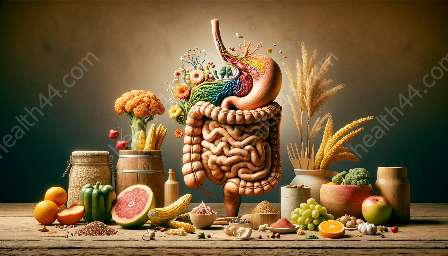Good nutrition is essential for maintaining a healthy lifestyle. A well-balanced diet plays a crucial role in promoting overall health and well-being. This comprehensive guide explores the significance of a balanced diet and provides practical tips for achieving it.
Understanding a Well-Balanced Diet
A well-balanced diet involves consuming a variety of nutrients in appropriate proportions to support overall health. This includes macronutrients such as carbohydrates, proteins, and fats, as well as micronutrients like vitamins and minerals. Adequate hydration is also essential for sustaining a balanced diet.
The Role of Macronutrients
Carbohydrates: Carbohydrates serve as the primary source of energy for the body. Including whole grains, fruits, and vegetables in your diet can provide a steady supply of complex carbohydrates, fiber, and essential nutrients.
Proteins: Proteins are vital for building and repairing tissues, and they play a key role in the body's immune system and hormone production. Sources of lean protein include poultry, fish, legumes, and dairy products.
Fats: Healthy fats are essential for brain function and hormone production. Incorporating sources of unsaturated fats, such as nuts, seeds, avocados, and olive oil, can contribute to heart health and overall well-being.
The Significance of Micronutrients
Vitamins and Minerals: Micronutrients are essential for various bodily functions, including bone health, immune system support, and energy metabolism. Consuming a diverse range of fruits, vegetables, and whole foods can help ensure adequate intake of essential vitamins and minerals.
The Importance of Hydration
Adequate hydration is integral to maintaining a well-balanced diet. Water supports digestion, nutrient absorption, and temperature regulation. It is recommended to consume at least eight glasses of water per day, and more in hot or humid conditions or during physical activity.
Benefits of a Well-Balanced Diet
Adopting a well-balanced diet offers numerous benefits for overall health and wellness. Some of the key advantages include:
- Promotes healthy weight management
- Enhances energy levels and physical performance
- Supports immune function and reduces the risk of chronic diseases
- Improves cognitive function and mental well-being
- Contributes to better digestion and gut health
Tips for Achieving a Well-Balanced Diet
Maintaining a well-balanced diet requires thoughtful planning and mindful consumption. Here are some practical tips to help achieve and sustain a balanced diet:
- Diversify Your Plate: Incorporate a wide variety of fruits, vegetables, whole grains, lean proteins, and healthy fats into your meals.
- Practice Portion Control: Be mindful of portion sizes to avoid overeating and support weight management.
- Limit Added Sugars and Processed Foods: Minimize consumption of sugary snacks, sodas, and processed foods high in unhealthy fats and additives.
- Stay Hydrated: Drink an adequate amount of water throughout the day, and consider hydrating with herbal teas and fresh fruit juices.
- Plan and Prepare Meals: Schedule time for meal planning and preparation to ensure balanced, nutritious meals are readily available.
- Seek Professional Guidance: Consult a registered dietitian or nutritionist for personalized dietary recommendations and guidance.
Educational Resources for Well-Balanced Diets
For further information on well-balanced diets, consider exploring reputable educational resources and publications on nutrition and healthy living. Learning about dietary guidelines, cooking tips, and meal planning can greatly support your journey towards a well-balanced diet.




























